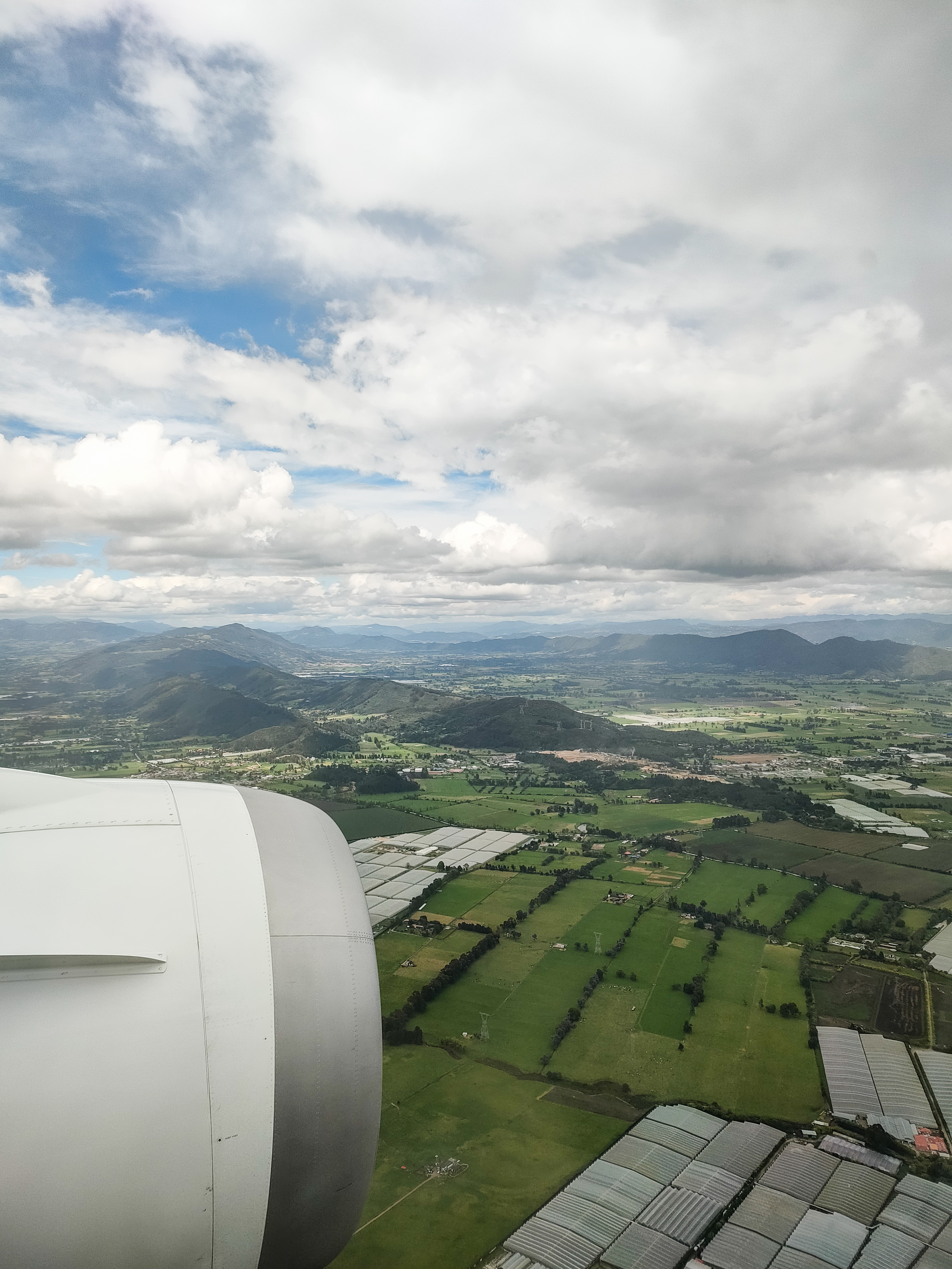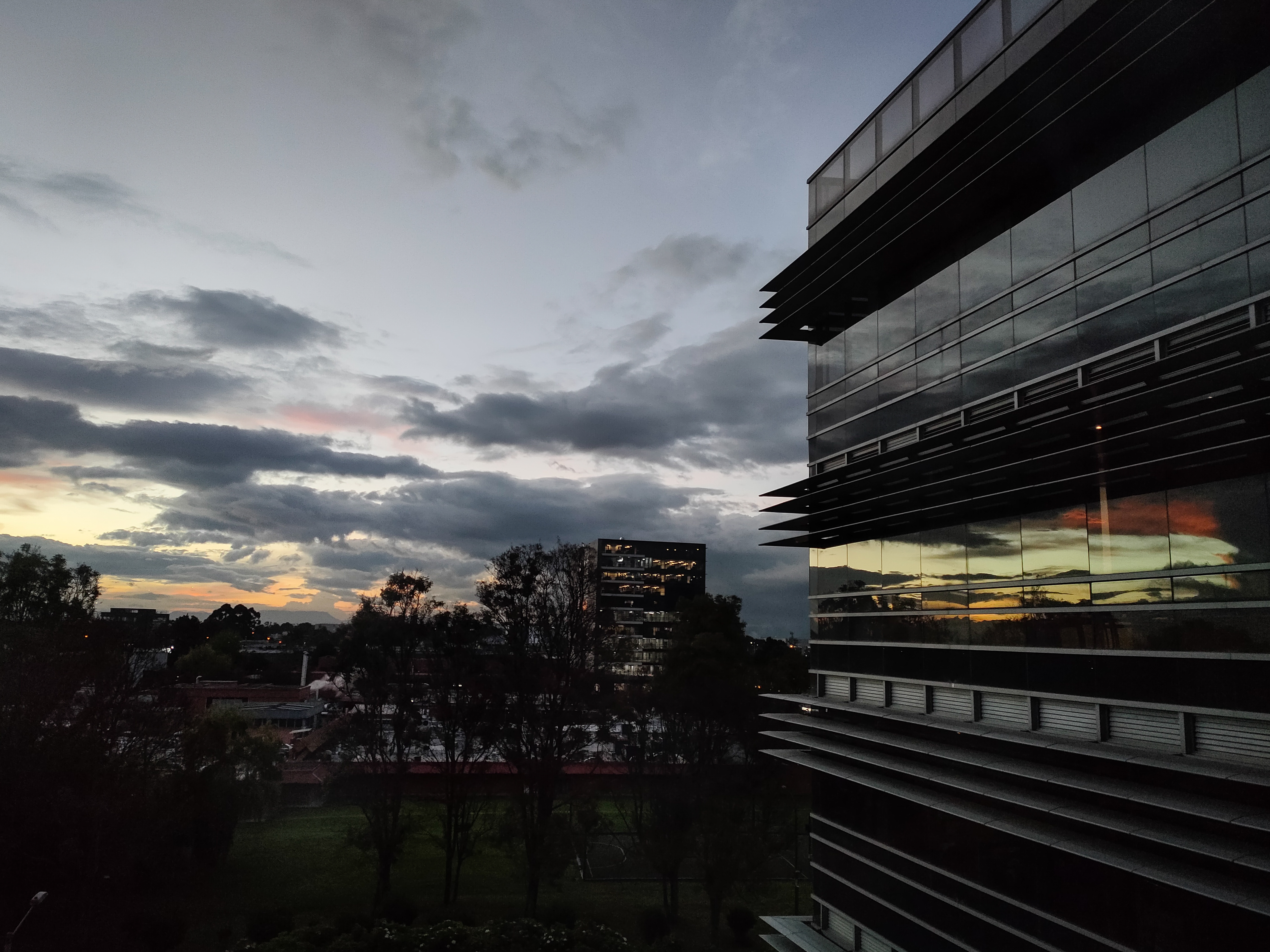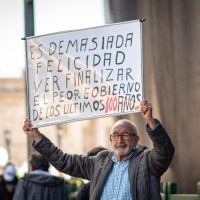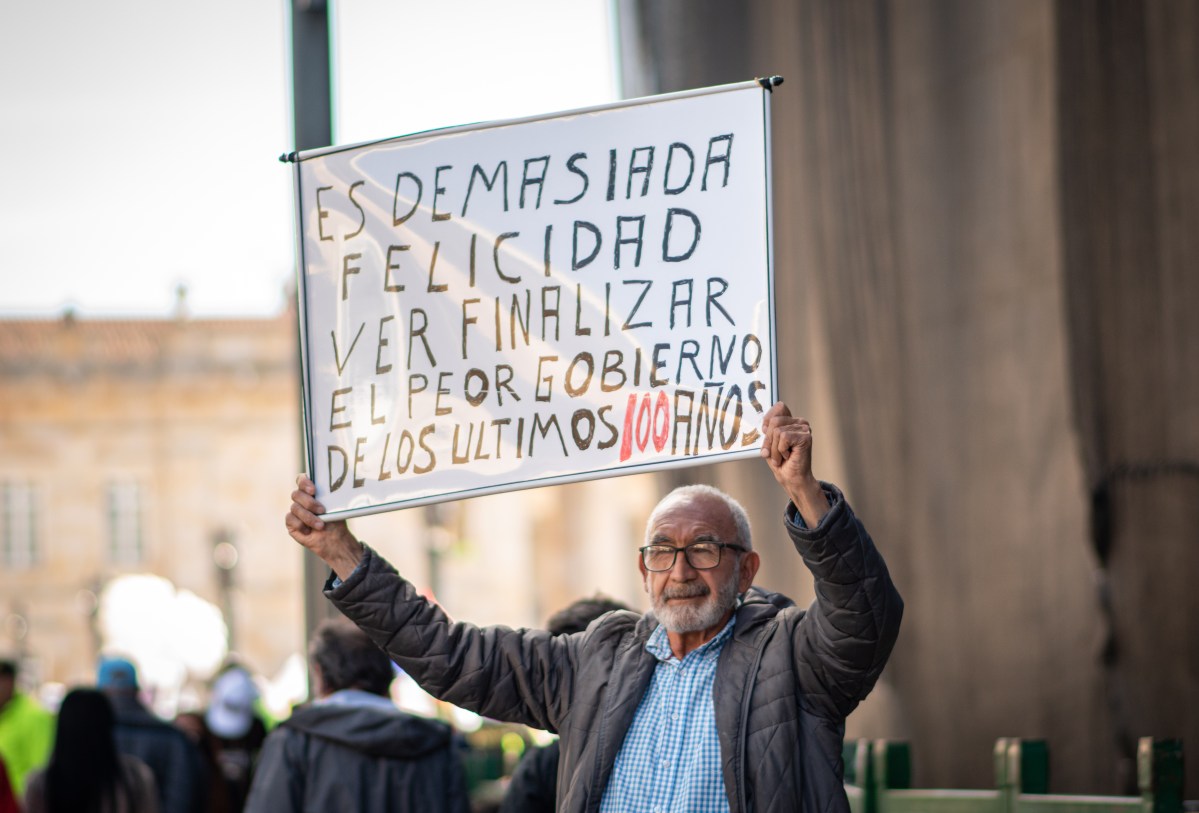Bogotá, Colombia- Amidst rising violence in rural areas, a faltering peace process and one year after massive protests rocked this Andrean nation, Colombians go to the polls May 29th for the first round of presidential elections.
Whoever wins the election will face a host of humanitarian as well as economic challenges, historic distrust in government and a host of armed groups who have grown in power since 2016 when Colombia ended, at least in theory, its more than 50-year civil war.
The peace deal with leftist rebel group the Revolutionary Armed Forces of Colombia (FARC)
was highly controversial when then-president Juan Manuel Santos pushed it though Congress after it failed a popular referendum. The deal has been largely delayed and stonewalled by the current administration, which has preferred military strategies to social ones in dealing with growing violence.
Presidential elections this Sunday will determine the future of that deal— whether investments long-promised by the government actually materialize, or whether Colombia’s cycle of criminal violence continues.
The current frontrunner in the polls, Gustavo Petro, ex-mayor of Bogotá, current senator and former member of guerilla group M-19 may well become the first leftist candidate to win the office in almost 200 years. The last arguably left-wing president to lead the polls in Colombia, Jorge Eliecer Gaitan, was assassinated in 1948 before the campaign was completed- inspiring “La Violencia, an epoch of intense civil conflict in Colombia that lasted almost a decade.
Current president Iván Duque, of the right-wing party Centro Democratico (CD), is facing historic unpopularity. The Colombian constitution prevents him from running for a second term. His party, which is almost as unpopular as he is, is not bothering to field a candidate. They have instead unofficially endorsed right-wing candidate Federico Gutiérrez, who has campaigned largely in support of CD policy.
In recent weeks, a wildcard candidate, Rodolfo Hernández, has been gaining on Gutiérrez and now polls just a few points behind. Hernández is a construction magnate and ex-mayor of Bucaramanga, in eastern Colombia. He has run an unconventional anti-corruption campaign via social media. The candidate, who is often compared to Donald Trump by both critics and supporters, is ostensibly right-wing, though some of his policy proposals don’t easily fit into any left-right category.

Since FARC disarmed and rejoined civil society, a plethora of other armed groups have stepped into the vacuum they left behind. In early May, a right wing criminal armed group called “the Clan de Goldo”, descended from paramilitaries who fought on the side of the government during the civil war conducted a “paro armado”, a compulsory lockdown which shut down nearly a quarter of the country. For five days, the Clan de Golfo enforced restrictions on transportation and economic activity at gunpoint.
It was the third such lockdown this year. The National Liberation Army (ELN), a leftist rebel group that does not recognize the peace accord with the government, imposed similar strikes in eastern and northern Colombia earlier this year.
Colombia is also the most dangerous country in the world for social leaders and environmental activists, who are regularly assassinated, and election related violence has risen in recent weeks..
The difference between the policies of Petro and Gutiérrez in response to the growing insecurity could not be more clear. Gutiérrez has said he endorses Colombia’s 2016 peace deal, but also supports the military solutions of current President Duque. He has called for “bullets or prison” for armed groups.
Petro insists that without real peace, there can be no democracy and has proposed peace talks with any armed groups interested, as well as a return to the full rollout of the 2016 deal.
The rising power of armed groups is occurring alongside a public lack of trust in government institutions— fallout from a bloody police crackdown on nationwide protests in 2021 as well as military actions against armed groups that have been described as “massacres” ensures that whoever next takes office will have problems executing their agenda.
“The next president is in a bind,” Sergio Guzman, director of Colombia Risk Analysis, a research and consultancy firm in Bogotá. “Armed groups have demonstrated their power in the regions they control, and they continue to benefit from the War on Drugs, extortion and illegal mining.”
Slow recovery from a COVID induced recession, as well as one of the highest rates of inequality in Latin America have punished the Colombian economy over the last two years, and rising global fuel prices are leading to both inflation as well as impacting the government budget in the way of increasingly more expensive gasoline subsidies.
Petro has proposed transitioning away from an extraction economy, investing instead in agriculture, clean energy and tourism while building infrastructure in conflict zones which have been neglected by Bogotá for decades.

Gutiérrez, running on a general pro-business platform largely consistent with the current administration, has endorsed doubling down on Colombia’s hydrocarbon industries, which represent nearly a third of the government budget. He has proposed fracking as well as increased oil exploration as a strategy to combat growing economic woes.
Hernandez seems to advocate for a “hands off” approach to the peace process, allowing local communities to find their own solutions. He has strongly advocated for more aggressive police and military strategies in the War on Drugs however, a strategy that based on previous experience in Colombia, seems doomed to fail.
Anna, who asked that her real name not be used for fear of retribution by criminal groups, is an elementary teacher in northwestern Colombia in the department of Urabá— a region firmly controlled by armed criminal group “the Clan de Golfo”.
“This violence is ever-present,” she explained to Preemptive Love. “We have grown desensitized to it.” During the paro armado conducted by Clan de Golfo, her classes were canceled due to concern for students’ safety. Anne assigned a considerable amount of homework for students that are already behind after nearly a year of virtual only classes due to Covid lockdowns. As armed groups patrolled the streets, a number of people in her town were killed for simply being outside of their homes amidst travel bans.
When classes resumed the next week, Anne described the reactions of her students. “For the older ones, it was just another part of everyday life in a region that has always been in conflict,” she said.
But she remembers one of the younger students telling her, “It was really weird to do homework while hearing gunfire outside, Ms Anne.” She was taken aback. It should be weird, she reflected. It should be extremely uncommon, terrifying and abhorrent.
“But here in Urabá, it isn’t unusual at all,” she said. “The next president has an opportunity to change that, and I hope to God they do.”


